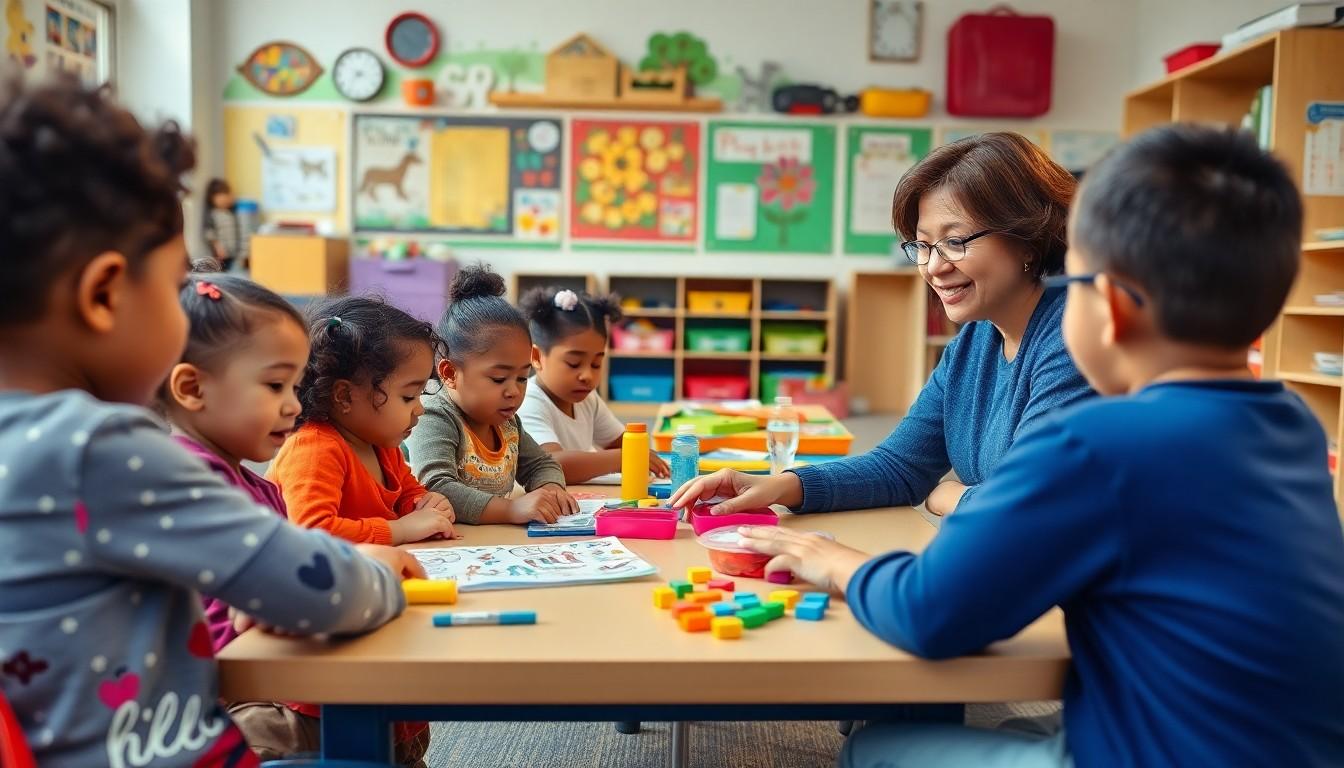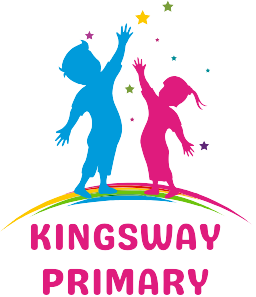Early learning sets the foundation for a child’s future success and Chicago stands at the forefront of innovative educational programs for young minds. The Windy City’s commitment to early childhood education shines through its diverse network of preschools daycare centers and educational initiatives designed to give every child the best possible start.
Chicago’s early learning landscape offers a vibrant mix of public private and community-based programs that cater to families from all walks of life. From the bustling Loop to the charming neighborhoods of Lincoln Park and Hyde Park parents can find high-quality educational opportunities that blend academic readiness with social-emotional development. These programs don’t just prepare kids for kindergarten – they’re launching pads for lifelong learning where little ones discover everything from ABCs to Chicago’s rich cultural heritage.
Table of Contents
ToggleThe Rich History of Early Learning in Chicago
Chicago established its first public kindergarten in 1892, marking the beginning of a comprehensive early education system. The city’s commitment to early childhood education spans over 130 years of innovative programs tailored to meet diverse community needs.
Notable Early Childhood Programs Through the Years
The Hull House kindergarten program, founded by Jane Addams in 1889, served immigrant children in Chicago’s West Side neighborhoods. The Chicago Child-Parent Centers launched in 1967, becoming the second-oldest federally funded preschool program in the United States. Head Start programs expanded throughout Chicago in 1965, reaching 5,000 children in their first year.
| Year | Program Milestone | Initial Impact |
|---|---|---|
| 1889 | Hull House Kindergarten | 100+ immigrant families served |
| 1965 | Head Start Chicago | 5,000 children enrolled |
| 1967 | Child-Parent Centers | 4 centers opened |
The Tuley Park Child Parent Center opened in 1970, pioneering family engagement practices. The Chicago Public Schools established Universal Preschool in 2006, enrolling 12,000 three-year-olds in its first phase. The City Colleges of Chicago introduced early childhood education degree programs in 1990, training specialized educators for community programs.
Understanding Chicago’s Early Learning Programs Today

Chicago’s early learning landscape features comprehensive programs serving children from birth through age 5. These programs operate through multiple agencies creating an integrated system of early childhood education across the city.
Head Start and Early Head Start
Head Start programs serve 15,000 Chicago children ages 3-5 annually through 80 community-based organizations. Early Head Start provides services to 2,500 infants toddlers in 40 locations throughout the city. The programs offer:
- Full-day classroom instruction focusing on cognitive social development
- Health screening dental care medical services
- Family support services including parent education workshops
- Nutrition programs providing daily meals snacks
- Specialized support for children with disabilities
- Bilingual programming in Spanish Polish Arabic
Pre-K Programs in Chicago Public Schools
Chicago Public Schools operates pre-kindergarten programs in 360 elementary schools serving 20,000 children. The system includes:
| Program Type | Age Group | Annual Enrollment |
|---|---|---|
| Universal Pre-K | 4-year-olds | 14,000 students |
| School-Based Pre-K | 3-year-olds | 6,000 students |
- Research-based Creative Curriculum implementation
- Certified early childhood teachers in every classroom
- 6-hour instructional day with before after care options
- Developmental screenings assessment three times yearly
- Parent engagement activities monthly workshops
- Transition support into kindergarten programs
Key Features of Chicago’s Early Learning Centers
Chicago’s early learning centers incorporate research-based practices with comprehensive support services. These centers prioritize developmentally appropriate education while maintaining high standards for both curriculum implementation and staff qualifications.
Curriculum and Learning Approaches
Chicago early learning centers use the Creative Curriculum framework integrated with Illinois Early Learning Standards. The framework emphasizes hands-on exploration through learning centers for art, science, literacy, math, dramatic play and construction. Teachers incorporate daily read-alouds, small group activities and individual instruction based on each child’s developmental level. The curriculum includes:
- STEM activities like building, measuring and scientific observation
- Language development through conversations, songs and storytelling
- Social-emotional learning focused on self-regulation and peer interactions
- Cultural responsiveness celebrating Chicago’s diverse communities
- Regular assessments tracking each child’s progress across domains
Teacher Qualifications and Training
Chicago early learning teachers meet rigorous educational requirements aligned with state standards. Lead teachers hold bachelor’s degrees in early childhood education or related fields plus Illinois teaching licenses. The professional development includes:
- 40 hours of annual training in child development and teaching methods
- Mentoring partnerships between new and experienced educators
- Monthly professional learning communities for lesson planning
- Specialized certifications in areas like special education and ESL
- Ongoing coaching from curriculum specialists and master teachers
The centers maintain low student-teacher ratios of 10:1 for preschool and 8:1 for toddler classrooms to ensure individualized attention.
Accessibility and Enrollment Options
Chicago’s early learning programs offer multiple pathways for families to access quality education through streamlined enrollment processes. Families receive personalized guidance to match their children with programs that align with their needs, schedules and locations.
Finding the Right Program
Chicago’s Early Learning Portal connects families with 700+ licensed programs across the city. Parents search programs by location, age group (0-5 years) operating hours through an online matching tool. The Chicago Early Learning hotline provides multilingual assistance for program selection through dedicated enrollment specialists. Key factors in program selection include:
- Program types: Head Start full-day center-based school-year programs
- Location options: Community centers neighborhood schools park district facilities
- Schedule flexibility: Full-day part-day extended care summer programs
- Language supports: Dual language programs ESL services translation assistance
- Special needs services: Developmental screening specialized instruction therapies
Financial Assistance and Scholarships
Chicago offers multiple funding streams to make early learning affordable for families. Income-eligible households access programs through:
| Assistance Program | Income Threshold | Coverage |
|---|---|---|
| Head Start | Below 100% FPL | 100% Free |
| Child Care Assistance | Below 200% FPL | Sliding scale |
| PreK4All | Universal | Free for 4-year-olds |
| Early Head Start | Below 100% FPL | 100% Free |
- Income-based sliding fee scales
- Child care subsidies for working parents
- Scholarship programs through community partners
- Wraparound funding for extended day services
- Transportation assistance for eligible families
Impact of Early Learning on Chicago’s Communities
Chicago’s early learning programs create lasting positive effects across diverse neighborhoods by strengthening educational foundations and family engagement. These initiatives demonstrate measurable improvements in academic achievement social development and community cohesion.
Educational Outcomes and Success Stories
Chicago’s early learning programs report significant academic gains for participating children. Students who attend Chicago early learning centers show a 25% higher kindergarten readiness rate compared to peers without early education exposure. Data from the Chicago Child-Parent Centers reveals that program graduates achieve 15% higher reading scores 12% higher math scores in elementary school. Notable success stories include the North Lawndale Learning Center where 90% of pre-K graduates meet or exceed state reading standards by third grade. The Englewood Early Learning Hub demonstrates impressive results with 85% of their students mastering age-appropriate social emotional skills before kindergarten entry. These outcomes translate into tangible benefits:
| Metric | Achievement |
|---|---|
| Kindergarten Readiness | 25% higher |
| Reading Scores | 15% increase |
| Math Scores | 12% increase |
| Reading Standards (North Lawndale) | 90% meet/exceed |
| Social-Emotional Skills (Englewood) | 85% mastery |
The programs also foster multicultural understanding with 75% of centers offering bilingual instruction enabling children from diverse backgrounds to maintain cultural connections while developing English proficiency.
Current Challenges and Future Developments
Chicago’s early learning system faces capacity constraints with 35% of eligible families unable to secure spots in high-demand programs. Waitlists stretch to 6 months at popular centers particularly in areas like Logan Square West Town.
Infrastructure aging impacts 40% of facilities requiring significant upgrades to maintain quality standards. Essential renovations include:
- Modernizing classroom technology equipment
- Updating playground safety features
- Improving building accessibility
- Expanding indoor activity spaces
Teacher retention presents ongoing challenges with a 25% annual turnover rate. Current initiatives address this through:
- Increased salary scales starting at $45,000
- Enhanced benefits packages including childcare subsidies
- Professional development funding up to $2,500 annually
- Mentorship programs connecting new educators with veterans
| Demographic Shifts | Current % | 2025 Projection |
|---|---|---|
| ESL Students | 28% | 35% |
| Special Needs | 12% | 15% |
| Under Age 3 | 15% | 22% |
Planned expansions focus on addressing these evolving needs:
- Adding 50 new infant toddler classrooms by 2024
- Creating 15 specialized centers for children with disabilities
- Establishing 25 dual language programs in high need areas
- Implementing universal developmental screening protocols
Digital integration enhances program delivery through:
- Virtual parent engagement platforms
- Real time child progress tracking
- Automated enrollment systems
- Remote learning capabilities for emergency situations
- $50M for facility modernization
- $35M for workforce development
- $25M for curriculum enhancement
- $15M for technology integration
Conclusion
Chicago’s early learning system stands as a beacon of educational innovation serving thousands of families across the city. Through its comprehensive network of programs facilities and dedicated educators it continues to shape young minds and build stronger communities.
The city’s commitment to accessible quality education from birth to age 5 has created lasting positive impacts on children’s academic success and social development. Despite facing challenges like capacity constraints and teacher retention Chicago’s early learning initiatives remain focused on growth adaptation and excellence.
With ongoing investments in infrastructure workforce development and curriculum enhancement Chicago’s early learning system is poised to meet the evolving needs of its diverse population while maintaining its position as a leader in early childhood education.



